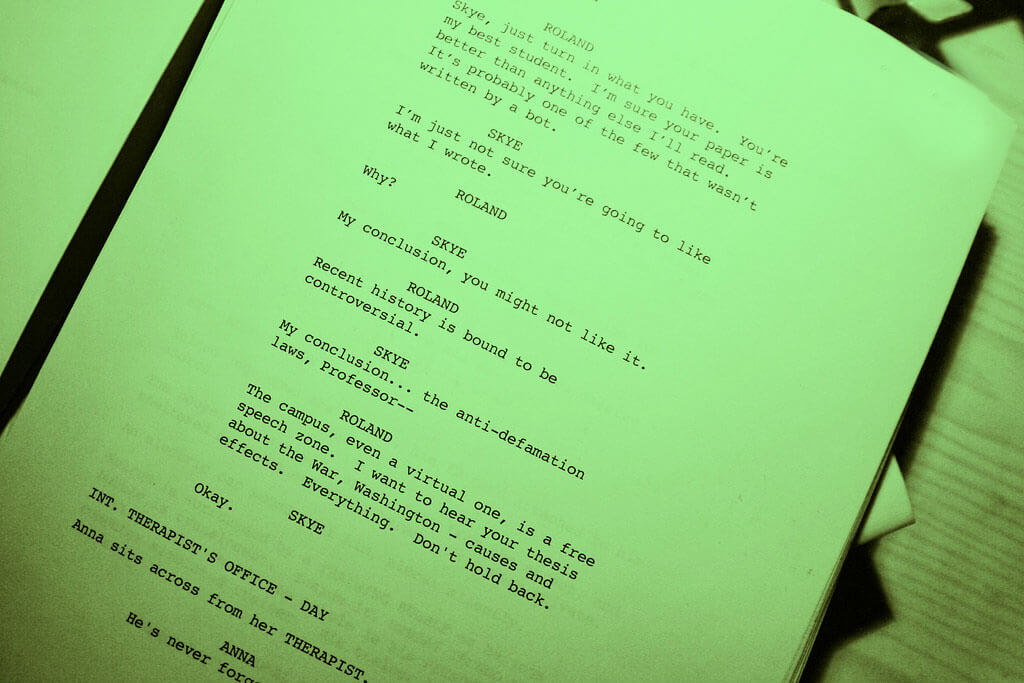What is screenplay registration?
Screenplay registration is a process where a screenwriter submits her screenplay or other literary material to a third-party registration service such as Script Register.
Those services then provide the screenwriter with a document. That document details the time and date which the material was submitted by the screenwriter, and then keeps and stores, the work which the screenwriter submitted.
That copy of the document and the registration work together to provide additional proof of authorship of the literary material.
Is it bulletproof?
Does that mean that script registration is bulletproof and foolproof? Does it mean it can fend off any false claim to the material made by an unscrupulous producer trying to steal your work? No. But it does provide an extra layer of documentation. That extra layer can used as evidence to help prove title and ownership. (Should the need arise. Which we hope it never does.)
The key word is the word “documentation.” The more documentation you have to help prove your authorship, the better your chances of proving it. There are many other forms of documentation that could come into play as well. For example, drafts of the screenplay, correspondence such as email or certified mail, faxes, etc.
Any document tying a time and date to the actual text of the document can be invaluable to a writer. That’s because a judge or arbiter or attorney can use that documentation to help prove authorship. Or, to figure out who’s the major author on a group or partnership work. Or, who’s deserving of X credit or Y credit based on the text and time of the material in question.
How screenplay registration helps writers protect their work
Registering your screenplay helps to prevent plagiarism or unauthorized use of your screenwriting and material. The actual text of a screenplay, archived and timestamped, can serve as an effective piece of evidence. Should the need arise to prove authorship, or establish title on the screenplay, it helps. It can even help prove a writer’s exact textual contribution to the script. That is, if you’re in a co-writing situation.
When screenwriters transmit their scripts via email to anyone, a copy of that script is automatically made. The original resides on the writer’s device, and a copy then exists on the device of the person you’ve sent the script to.
By creating multiple copies of the script out “in the wild” like this, it becomes easier for the script to be further distributed. Not to mention more likely that the actual text may be stolen by unscrupulous persons. For example, a producer looking to exploit the entire text of a script by a new writer without having to pay that writer. Or even a filmmaker looking to steal your unique chase sequence, or a smart piece of dialogue, or a character.
Do I need to copyright my screenplay?
The good news is, screenplays, outlines, and treatments, as well as teleplays, are generally protectable by copyright. And there’s no requirement to have to actually legally register those materials for any official copyright.
The law states that as soon as you type anything and save it to disk, it’s copyrighted. Whether it’s finished or not, that work is copyrighted. That said, you can register your work with the US copyright office by filling out a form and mailing your script and a check.
The bad news is, while documents and other things can be copyrighted, ideas can’t be legally protected in any significant way.
Under the law, ideas or concepts cannot be copyrighted. To be clear, there are ways to sue for what’s deemed as “idea misappropriation.” But, it’s rare that those cases are ever successful. That’s due to how difficult it is to prove that any sort of misappropriation of ideas actually took place.
How does screenplay registration work?
The screenplay registration process is a pretty straightforward one. It entails sending your script to a trusted third-party screenplay registration service. That service then sends you a document stating the time and date you sent the material. Then the service archives your material, locking it away on a secure server. Hopefully never to be used.
When you register your script at Script Register, by the time we’ve sent your certificate to you, we’ve already archived your entire submitted document. That means any script, outline, or whatever you send is archived on our secure server.
The idea is: in the event you need to pursue legal action against an infringing party, screenplay registration provides you with third-party proof. Proof that you sent in such-and-such work on such-and-such a date. Then, should you need to, you can then use the registration as proof to help your case in any arbitration or dispute.
Think of it like this — a judge, jury, or arbitration panel is tasked with determining authorship of your work. If you’re able to provide them a timestamped, date-stamped copy of your material, that helps immensely. Think of it as extra documentation that can help you proof your claim of authorship to your work.
If you can present your copyright, that’s good. Not only good, great. But if you can also present third-party timestamped proof of authorship? It could hold even more weight and help your case even more.
